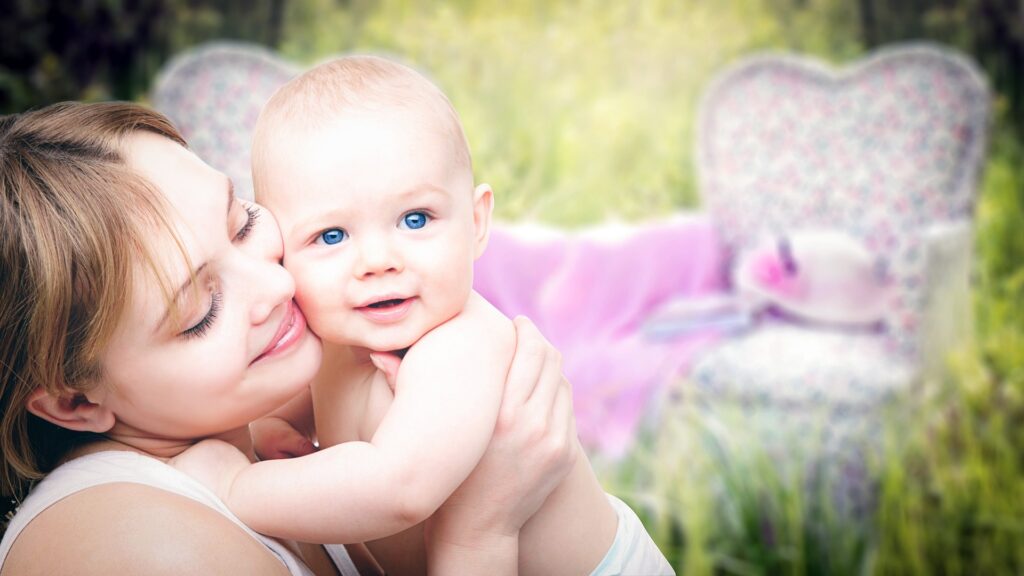Knowing how a baby’s milestones in life develop is extremely fascinating and important for every parent and baby caretakers. One of these milestones is when a baby starts to recognize their name. This achievement is an intellectual act and a social development for a baby. Let’s find out how babies recognize their name and how this recognition develops and what it means in their overall growth.
Timeline of name recognition
Usually, babies start to recognize their names between the age of 4 to 6 months. This recognition is the first step of the start of their journey of language development, where they start to identify the differences between sound, understand speech patterns and then slowly start to comprehend words and phrases.
At the age of 4 months babies start to notice patterns in different sounds they hear. This is when they start to pay attention to words that they hear frequently, this includes their name. Repetition is they key here, by the age of 6 months they turn their heads and show excitement when they hear their names. They not only recognize it but also associate it with their identity.
How babies learn to recognize their name
Auditory Processing
From birth babies hear a lot of sounds. The start to recognize their mother’s voice as time goes by as they are familiar with it from the womb. And as they grow, they start to recognize the differences between different types of sounds and voices around them.
The first few months are very important for auditory processing. Babies learn to give more importance to sounds that help them to focus on those who are most relevant, such as the voices of their parents and caretakers. By the age of 4 months, they start to give more attention to specific sounds that are repeated frequently, like their name. This process is facilitated by the brain’s remarkable ability to detect patterns and make associations.
Social Interaction
Babies are naturally accommodated to social interaction. When parents call babies by their names, they often use eye contact, facial expression and gesture. These social cues help the baby associate the sound of their name with themselves.
The role of social interaction to recognize name is immense. When a baby hears his name is being called in a lovely and engaging manner, they get excited and start to connected with the sound. This connection is reinforced through daily routines and interactions, making the name a significant part of their social world.
Cognitive Development
Cognitive growth during the first year of life is rapid. A baby’s ability to understand words and sound develops as their brain develop. Recognizing their name is one of the first signs of this burgeoning cognitive ability.
By 6 months babies show clear signs that they recognize their name. They will turn their heads towards the one who’s calling and may get excited. This shows that they not only understand the sound but also understand that it refers to them. This ability shows that the brain is developing and can process language and make meaningful connections.
Signs Your Baby Recognizes Their Name
There are signs that the baby show that help parents and caretakes to understand that the baby is recognizing his name:
Turning Towards the Sound: One of the first signs is that the baby responds to the sound. If the baby looks at you or turns his head towards you when you call his name, understand that your baby has recognized his name to some extent. The reaction shows that the baby can associate himself with the sound hence recognizing his name.
Increased Attention: Another sign is increased attention. Babies may stop their activity or become more attentive if you call their name. This behavior of focus suggests that they recognize the specific sound and are curious and interested in what follows.
Smiling or Responding: A baby might smile, or show other reactions when you call his name. This shows that the baby is interacting as he is recognizing his name.
Encouraging Name Recognition
Although recognizing name is a natural milestone development, parents and caretakers can encourage this process with a lot of simple everyday interactions:
Reptation: If you use your baby’s name frequently in various ways, during playtime, feeding and comforting the baby. The more they hear the name, the more familiar they become and the strong the association will be.
Positive Reinforcement: When your baby recognizes their name you should respond positively. Smiles, cuddles, and enthusiastic responses reinforce the association and encourage further recognition.
Engagement: Use your baby’s name during activities like reading, singing and while talking to them. This is not only be useful in recognizing name but it will also help to support overall language development. Using your baby’s name in interactions will help to build their understanding and connection to the sound.
When to Seek Advice
If you baby is 9 months old and still not showing any signs of recognizing his name, it will be a wise decision if you discuss with a pediatrician. While development may vary for everyone, a healthcare provider can help determine if there are any underlying concerns.
Conclusion
A baby recognizing his name is an exciting milestone of his development journey. It starts the beginning of their journey of understanding language and communication forming social bonds, and developing their cognitive abilities. By providing a nurturing and stimulating environment, parents and caregivers can support their baby’s growth and celebrate each step along the way.



